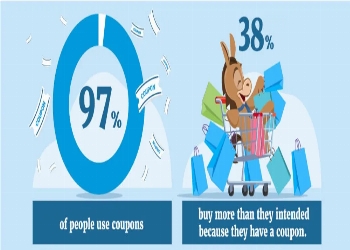
Employee Incentive Programs
Employee incentive programs have been widely promoted over the last couple of years as a great way of motivating employees. Well, we all love to be appreciated and it would come as no surprise that motivation would come in form of rewards and incentives.
However, it’s not all roses with these incentives programs and they have come under much backlash. If you are thinking of introducing such a program for your organisation, it’s important that you know what you are getting into. Check out the pros and cons below.
The Pros: One of the major advantages is that employee reward programs increase productivity in the workplace. If well planned, they can create cohesiveness and encourage slow performers to perform better.
Employees are motivated to work harder and the fact that there is a reward for their hard work works to encourage productivity. It also enhances performance.
Employees are not just rewarded for completing a task, it’s about the value they produce and this opens doors for better performance, creativity, hard work and loss prevention.
Employees are encouraged to reach their full potential which leads to better results. Employee retention is yet another advantage that comes with these rewards programs.
If employees are recognised for their efforts, they feel valued and begin to align both their career and personal goals to those of the company. These incentives bring about loyalty and employees will not be keen on switching jobs since they are free to utilise their skills fully and are recognised for it.
It also leads to better relations between management staff and employees as well as colleagues. Team work is encouraged to meet goals and everyone knows their role.
The Cons: There are disadvantages as well and one of these is that the selection process may not be perceived as fair. Employees may begin to sense some form of favouritism especially if only a selected group of people are rewarded constantly.This would lead to jealousy and discontentment in the workplace thus reducing morale and performance. Employees may also become de-motivated if their efforts go unrecognised or when they do not meet their goals.
Employees may resort to missing targets which would be detrimental to the company as a whole. While these programs are meant to encourage team work, they could bring about aggressive competitiveness. This would create resentment and decrease cohesiveness which is essential in any organisation. Limiting rewards to specific times of year would make the incentive or reward appear useless.
We want to be rewarded immediately and waiting till the end of the year to get a reward would make the reward lack meaning. There is no incentive to achieve goals.
Rewards programs also could lead to entitlement where employees feel entitled to rewards for working as they are supposed to.
As you can see, there are two sides to reward and recognition programs. While they can help your company meet its goals, they also may bring about conflicts. Proper planning and implementation will make the difference between the success and failure of your incentive and rewards program.-
 02/02/2024 234
02/02/2024 234 -
 11/17/2023 201
11/17/2023 201 -
 11/16/2023 206
11/16/2023 206 -
 11/16/2023 243
11/16/2023 243 -
 11/16/2023 226
11/16/2023 226 -
 11/07/2023 222
11/07/2023 222 -
 11/06/2023 254
11/06/2023 254 -
 07/10/2023 280
07/10/2023 280
-
 12/08/2016 5652
12/08/2016 5652 -
 03/22/2018 2679
03/22/2018 2679 -
 10/10/2016 2636
10/10/2016 2636 -
 01/09/2017 2528
01/09/2017 2528 -
 01/13/2017 2177
01/13/2017 2177 -
 01/13/2017 2166
01/13/2017 2166 -
 01/14/2017 2004
01/14/2017 2004 -
 11/06/2019 1990
11/06/2019 1990
FEATURED NEWS

Shopping Tips

Misc

Shopping Tips

Personal Finance

Shopping Tips





LEAVE A COMMENT